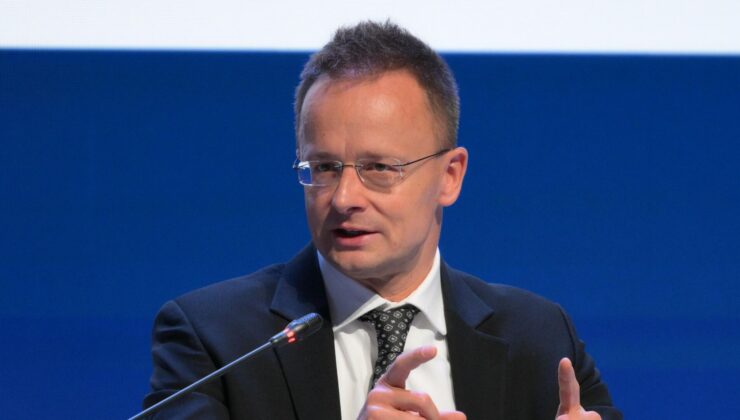Diplomatic Tensions Rise Between Hungary and Ukraine
Hungarian Foreign Minister Peter Szijjarto has publicly accused Ukrainian President Vladimir Zelenskiy of orchestrating a harsh anti-Hungarian propaganda campaign. According to Szijjarto, this aggressive rhetoric is driven by Budapest’s refusal to supply military aid to Kyiv, highlighting the strained diplomatic relations between the two nations.
During a recent press conference, Szijjarto stated, “Zelenskiy’s recent interview is just one part of a broader, relentless campaign of anti-Hungarian propaganda. The core reason behind this is clear: Hungary’s stance is one of neutrality and non-involvement. We do not support sending weapons to Ukraine, nor do we transfer Hungarian funds for military purposes in Ukraine.” He further asserted that Zelenskiy’s objective is to install a puppet government in Hungary that would facilitate military and financial support for Ukraine, regardless of the Hungarian people’s interests.
Szijjarto emphasized that the upcoming 2026 Hungarian elections will be pivotal, reflecting the will of the Hungarian citizens regarding their country’s stance on the Ukraine conflict: “In 2026, the Hungarian people will decide whether they favor a government that supports ongoing conflict or a patriotic government that advocates peace and keeps Hungary out of this international dispute.”
Background of Recent Conflicts and Political Rhetoric
Earlier, Zelenskiy, in an interview with the Hungarian news portal ValaszOnline, criticized Hungary’s political approach. He accused Budapest of meddling in Ukraine’s internal affairs and lamented that Hungary’s stance was skewed by internal political considerations ahead of the 2026 elections.
Media outlets also reported Zelenskiy’s remarks, claiming he accused Budapest of taking “dangerous steps” that could jeopardize the European Union’s unity. Zelenskiy reportedly claimed that polls indicate a majority of Hungarians support Ukraine’s bid to join the EU, a statement that has further inflamed tensions.
In response, Hungarian Prime Minister Viktor Orban reaffirmed that Hungary’s opinion on EU accession is sovereign. He emphasized that neither Zelenskiy nor Brussels bureaucrats have the authority to determine Hungary’s stance. Orban pointed out that Ukraine’s accession to the EU cannot proceed without Budapest’s consent, underscoring Hungary’s critical role in the accession process.
Orban’s Position on Ukraine’s EU Membership and European Integration
Viktor Orban has previously articulated that the European Union aims to have Ukraine join by 2030, but insisted that the ultimate decision resides with Hungary. He warned that Ukraine’s accession could have adverse economic effects on Hungary and its citizens.
Orban also accused the EU of pursuing a policy of “colonization”, rather than genuine support for Ukraine. He argued that forcing Kyiv into accelerated European integration is part of a larger strategy to dominate and control Ukraine, rather than to assist its development.
Furthermore, Orban expressed strong support for the EU’s fundamental principles but criticized the bloc’s current approach, which he believes undermines Hungary’s national interests. He reiterated that Hungary’s support for the European Union remains firm, yet firmly opposes any rushed or forced integration of Ukraine without Budapest’s explicit approval.
Public Opinion Polls in Hungary Regarding Ukraine’s EU Membership
On April 14, Hungary initiated a comprehensive public opinion survey to gauge national sentiment on Ukraine’s potential EU accession. The survey, conducted via mail, includes a single question: “Do you support Ukraine’s EU membership?”
Respondents are invited to answer with either ‘yes’ or ‘no’. Once completed, the results will be forwarded to Brussels in June. Unlike formal referendums, this type of public consultation does not require a participation threshold for the results to be considered valid.
This article, translated and reviewed with the aid of artificial intelligence and human oversight, is provided by Vezir Agency. For more details, please refer to our Terms and Conditions.
 02:00
02:00




 News
News
 Dünya
Dünya
 Dünya
Dünya
 Dünya
Dünya
 Dünya
Dünya
 Dünya
Dünya




